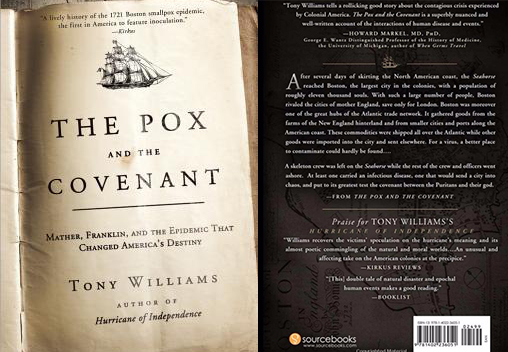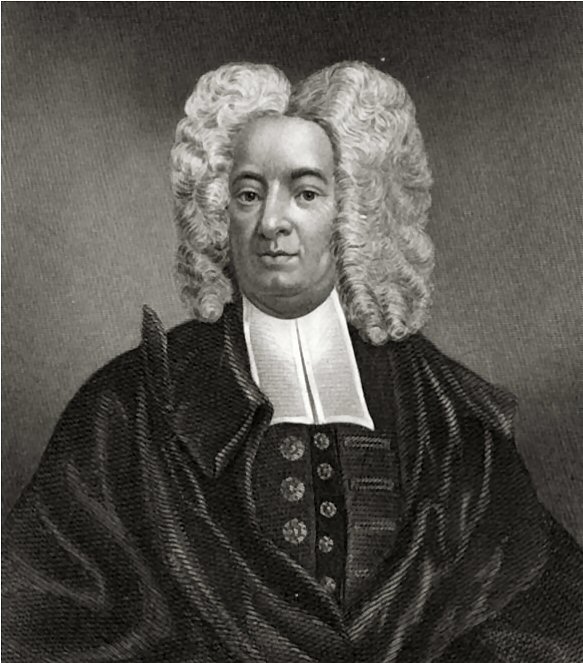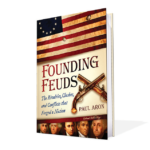
“The Pox and the Covenant” discusses the history of the 1721 smallpox epidemic and the (sometimes violent) battle over inoculations in Boston. What did I think of the book? Let’s find out.
The back cover of Tony Williams’ 2010 book states it is “the story of well-known figures such as Cotton Mather, James Franklin, and a young Benjamin Franklin struggling to fight for their cause amidst the chaos of death and panic—although not always for the side one would expect.” This is true for the most part. Without giving away too much, the book is about the smallpox epidemic that ran rampant in Boston in 1721 and Cotton Mather, but it really doesn’t get too deep into the weeds with the Franklins. I felt they were discussed more in passing than really for their part in the great debate.
Unlike most nonfiction books based on history, this book did not read like a textbook and was very easy to read. Williams’ writing style is easy to absorb and retain. I read his book “The Jamestown Experiment” in about two days on the beach in the Outer Banks several years ago. I know that wouldn’t be considered a beach read for most people, but we’ve already long established that I’m a history geek who collects history books. This is absolutely one to add to the collection of someone who is interested in science during the 18th century or the beginning of the Puritan decline.
I really enjoyed reading about the science and history of inoculations and how they were used in Boston in the 18th century. We know vaccinations today as a quick shot in the arm and off you go with a little discomfort but nothing major. Inoculations then involved cutting your arm and basically smearing the disease into your open wound. Then you had to suffer through the illness for a period of time as your body fought it. I’ll never complain about a flu shot again. A little soreness in the arm is nothing compared to that.

Cotton Mather
There was one thing that left me wanting with this book. Most people know Cotton Mather as the minister responsible for the horrific executions of 19 men and women during the Salem witch trials of 1692. This book worked to educate us all on the scientific discoveries Mather aided with about two decades later, however, I was disappointed Mather’s involvement in Salem was only mentioned as history painting Mather as “a sad caricature of a zealous witch hunter.” The truth is Mather was a zealous witch hunter and his role in the Salem Witch Trials cost 19 innocent men and women their lives. This was not mentioned at all, though Williams pointed out Samuel Sewell’s involvement with a paragraph of more than 100 words. Even Mather’s father Increase Mather was connected to Salem, but not Mather himself.
Had Salem not been mentioned at all, and the comment about Mather’s place in history not been included, I wouldn’t have thought anything of it. Unfortunately, this stuck with me like a thorn in my side. It likely will not make a difference to anyone else, but it was a distraction for me. There are just a few moments of history that I am fascinated with, and the Salem witch trials fall into that category. Others include the still-unsolved Jack the Ripper and Lizzie Borden cases. (Book recommendations on those welcome in the comments!)
That said, he was slightly redeemed in my eyes with how much he pressed for the inoculation of residents in Boston.
I would have liked to have learned more about Dr. Zabdiel Boylston, the doctor who performed the inoculations, and his feelings during the turmoil and fighting between doctors and religious figures. I was fascinated by him and want to read more. He was the only physician who listened to Mather and actually attempted the practice, which he obviously found worked.
Despite my minor annoyance about Mather, I do recommend this book as one to add to the collection. It explains how smallpox invaded the city of Boston and how the city entangled itself into a debate about the moral implications of inoculations. We here at Colonial Williamsburg work to show how the arguments of today were the arguments of yesterday. This is just another example of that. Today we have debates about vaccinations, and while they may be different than they were in 1721, they were still debates.


Covenant College says
Hey great post! I hope it’s alright that I shared it on my FB, if not, no issues just let me know and I’ll
delete it. Regardless keep up the great work.
Earlier in my adult years I was almost exclusively a reader of non-fiction. A big Dickens fan and others. My father was always huge on history, especially early American through the Civil War. Unfortunately for me I didn’t catch the history bug until I was in my early fifties, (now 62),, and I can’t hope to get through all the books I want and need to read. Now here is yet another! There are so many fascinating accounts from our history. I remember reading a good bit on Cotton Mather and the smallpox inoculation controversy, but it was just as a small part of another story. This one covering it in more detail sounds very interesting. I will have to see what I can do about it.
I meant to say “Earlier in my adult years I was almost exclusively a reader of FICTION”
Ptaliaferro says
If you are fascinated by the science in this book, then be sure to read “The Speckled Monster” by Jennifer Lee Carrell!
Thank you for the recommendation!